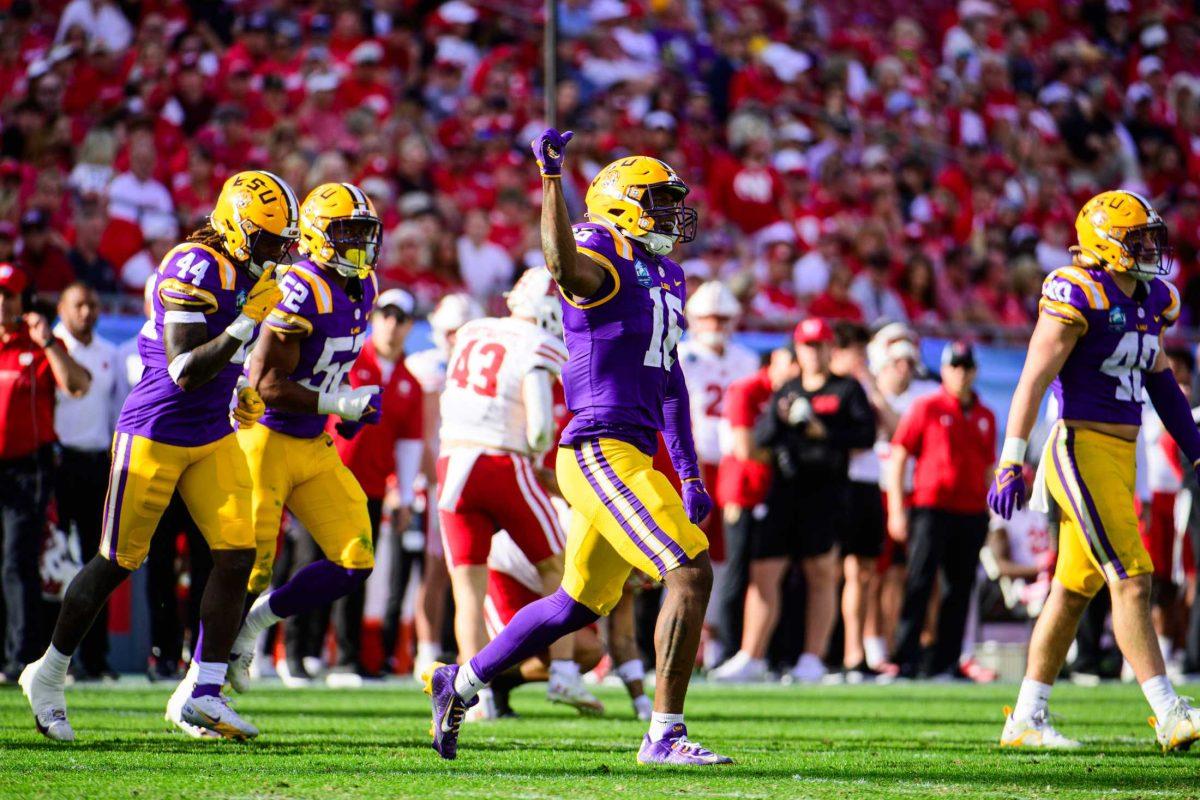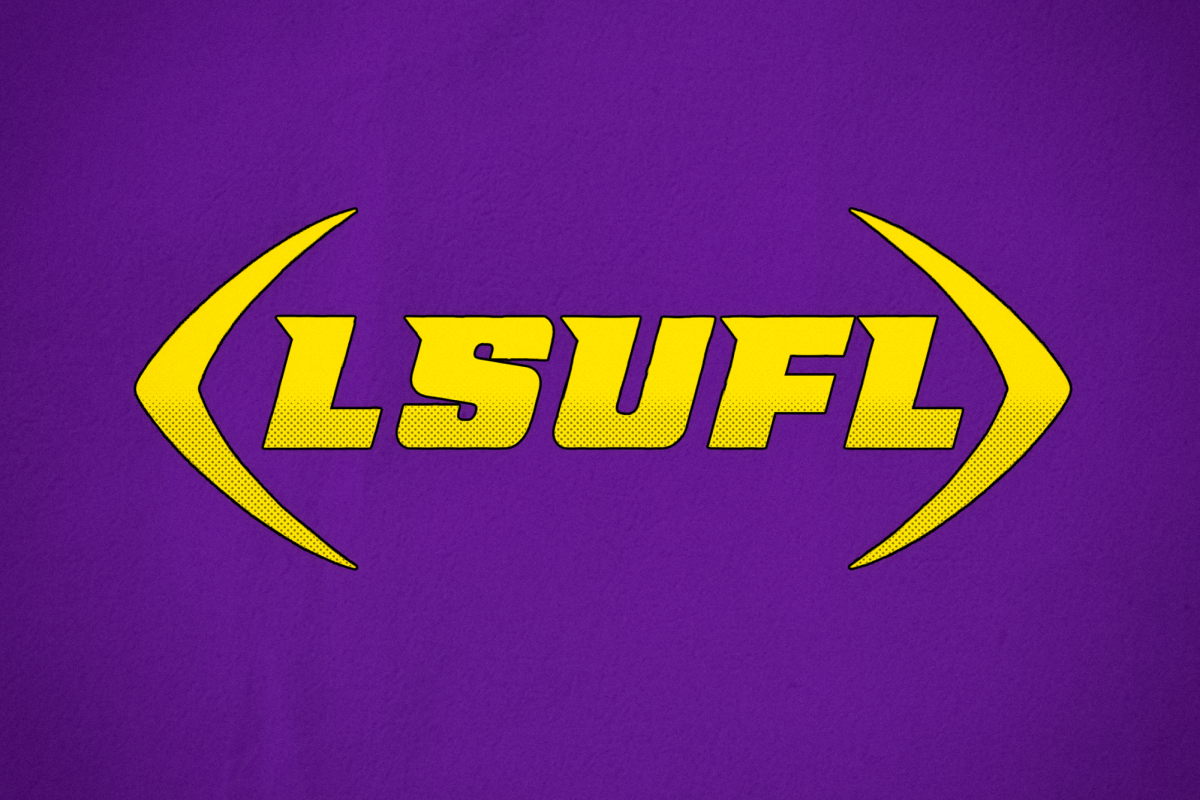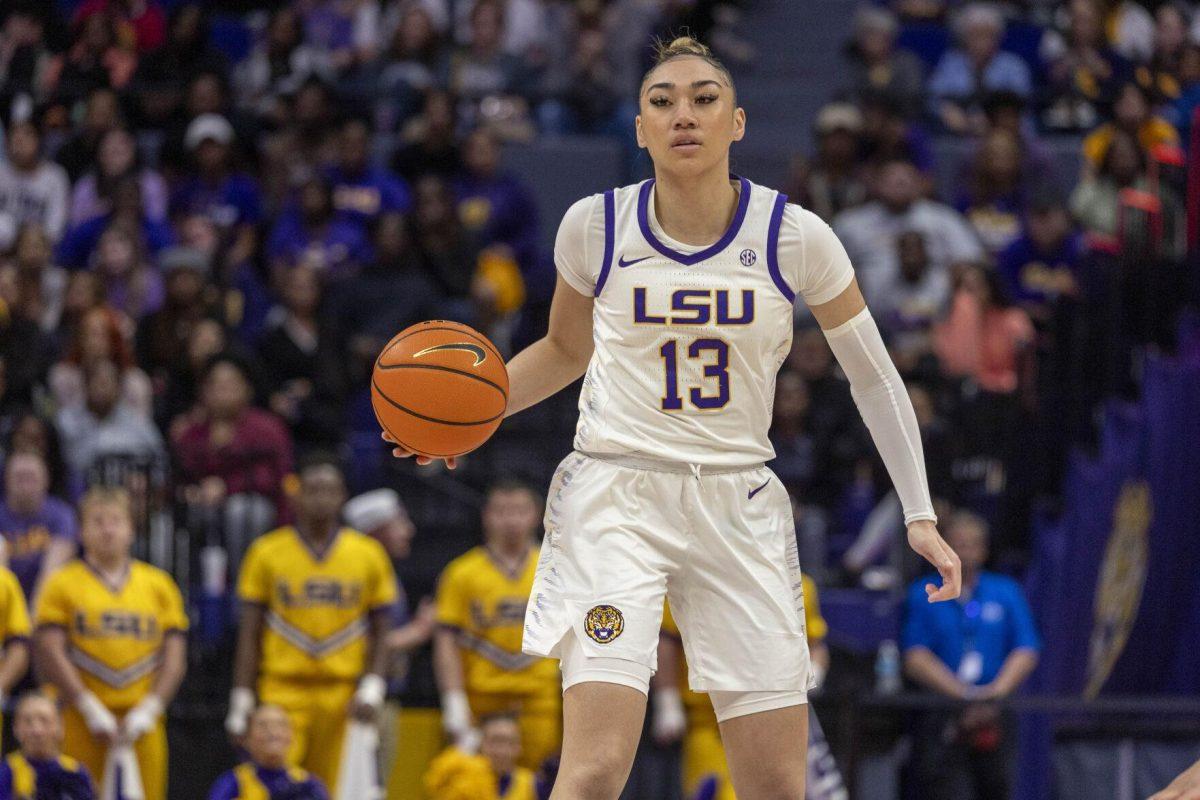Man-to-man, power-to-power, who wants it more. In college football, the trenches are where football games are fought and won.
Arguably, no two coaches carry this philosophy better than Bo Davis and Kevin Peoples, who were recently hired by LSU. The Tigers plan on having Davis work on the interior and Peoples, on the ends and edges.
A new chapter in LSU football has begun with its newly overhauled defense, and these two coaches are the perfect people to usher it in.
Davis is one of the best defensive line coaches in college football history. Players under his watch fight, produce and earn countless accolades: T’Vondre Sweat; Outland Trophy (2023), Keondre Coburn; 2nd Team All-Big 12 (2022), Moro Ojomo; 90.6 PFF Grade (2022), Marcus Davenport; 14th Overall Pick, Conference USA Defensive Player of the Year (2017).
Davis knows how to maximize his players’ ability, something LSU’s defense has missed. In his last two years at Texas, four players either were drafted, or are expected to be: Coburn, Ojomo, Sweat and Byron Murphy II. He knows how to transform prospects into players and does so in a way any fan can enjoy.
After a devastating loss to Iowa State in 2021, Davis went off on his defensive-line. The picture he painted was simple: if you aren’t giving it your all, you need to find a new program.
After the lecture, Texas’ defensive line entered a new level. The following year Texas beat the Cyclones 24-21, allowing only 2.6 yards per attempt. Iowa State finished with 74 total rushing yards and only one rushing score.
Davis teaches discipline.
In a position that requires a man to smash into another man, it seems discipline might not be a major factor. However, it’s easily one of the most important traits for great defensive linemen. Knowing when to punch, shed and close a lane; all of these skills require discipline.
Davis working in the interior, with Peoples on the outside, creates a tough matchup for any program. Peoples has been responsible for plenty of success in college football, including Indiana leading the Big 10 in sacks for the first time in program history. However, his hiring provides more than coaching.
A defense’s job is to cause chaos; the more havoc they wreck, the more likely their team wins. Structure might not seem important to this side of the ball, but without it, a defense will be picked apart.
Whenever LSU hired Blake Baker, he made sure to bring his defensive line coach with him. Peoples already has chemistry with Baker, which led to a 26th ranked scoring defense. His hiring creates a link between Baker and Davis. Davis works with the defensive line, Peoples works with the edge rushers, which can be defensive linemen or linebackers, and Baker is the defensive coordinator who focuses on linebackers.
Peoples’ hiring allows for LSU’s defense to flow as smoothly as possible. It creates a well experienced chain of command, resulting in increased efficiency on defensive plays.
Assume a defensive play is designed as the following: The defensive tackle applies interior pressure, the closest defensive end draws the tackle outward and the blitzing linebacker enters the newly opened lane to make a play.
It sounds simple, but fails without structure. By instilling this chain of command, LSU is preventing its defense from having negative plays caused by poor communication.
Having two incredibly talented coaches also allows the Tigers to use less personnel. A big reason why LSU lost against Alabama was because it couldn’t stop the quarterback run.
For starters, Baker, Davis and Peoples are all innovative enough to use a quarterback spy. Secondly, if a defensive line is efficient enough, they are able to prevent a quarterback from scrambling with only four down linemen.
While a quarterback spy is useful, a team able to contain the opposing quarterback with four down linemen adds another element to its defense. That would mean, in LSU’s case, Harold Perkins would be free, allowing him to drop into coverage, disrupt run plays or act as a blitzer.
In some cases, teams are able to successfully contain a quarterback with only three down linemen. That frees up another player; typically, a defensive lineman, which allows for more stunt blocks, a play between two defensive linemen to free up the other for a potential sack.
When a team is able to successfully contain with only three down linemen, they essentially have two free players, giving the defense a massive competitive edge.
The Tigers don’t need to consistently be able to only use three down linemen. But, if they’re able to have steady production between four, then the team easily wins more games.
Alabama quarterback Jalen Milroe had 155 yards and four touchdowns on the ground. If LSU’s defensive line perfectly contained the quarterback, the Crimson Tide would have finished with 352 total yards and only 14 points.
The Tigers probably would’ve won without much struggle if their defensive line played to perfection; the thing is, the line doesn’t have to be perfect. If it was just consistently productive and considering that all of Alabama’s points were from rushing touchdowns, the Tigers would have had a much easier time against the Tide.
In fact, if LSU’s defensive line was consistently productive, the team would’ve potentially gone undefeated.
The Tigers had zero sacks, in a game dependent on pressure, against Florida State. Jordan Travis threw from a clean pocket the entire game, resulting in him finishing with a 74.2% competition percentage, 342 yards and four passing touchdowns.
This issue lingered, only to be brought back up against Ole Miss, where LSU again produced zero sacks. This allowed Jaxson Dart to throw for 389 yards, complete 66.7% of his passes and finish with four passing touchdowns. The Tigers offense put up 49 points but was denied victory due to their defense having no structure.
Every level of its defense was attacked, and it’s clear that LSU is trying to prevent this from happening again. With its three new hires, structure has been created and efficiency has increased.








